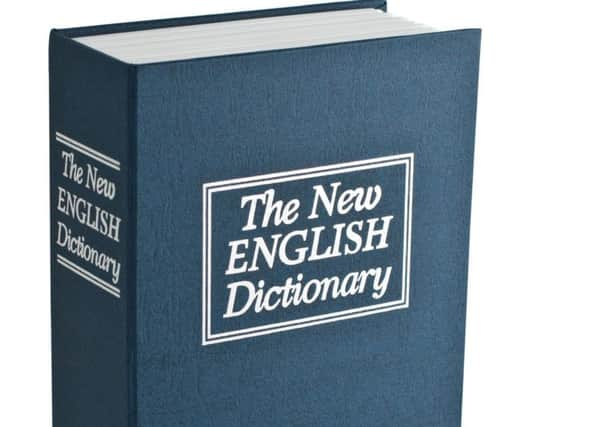Simply not fair to the English language


I’m somewhat pedantic on the subject of English grammar – it’s my job – and I mentally corrected it from “Fayre” to “Fare” and added the missing apostrophe.
That in turn got me thinking: When does fare become fayre? And for that matter, when does a fair become a fayre?
Advertisement
Hide AdAdvertisement
Hide AdThe answer is: When someone wishes to add a bit of phoney antiquity to something, attempting to conjure up a Falstaffian image of: “Ho there, mine host, bring me a butt of sack and a goodly capon and be not slow.”
Sorry, Brewers Fayre, but the term for food and drink is spelled “fare” – just like the fare you pay on the bus. The dictionary spelling makes no distinction between the meal and the ticket.
I didn’t have to go far to find further examples, such as the meat suppliers Farmers Fayre (also without an apostrophe) and a beauty salon named Vanity Fayre (the Thackeray novel was “Vanity Fair”).
The RSPCA recently had an Easter Fayre, paying scant regard to such cruelty to the English language, and no doubt people will be busy organising a plethora of Wedding Fayres, Antique Fayres and Summer Fayres.
Advertisement
Hide AdAdvertisement
Hide AdWhat’s the point, I rant, when “fair” is the word they want?
Look up “fair” in any reasonable dictionary, and you’ll find something like: “A gathering of stalls and amusements for public entertainment.”
Look up “fayre” and you’ll find “pseudo-archaic spelling of fair”
The Cambridge Dictionary states sniffily: “We do not have an entry for fayre.”
Advertisement
Hide AdAdvertisement
Hide AdBut hold on, can I be 100 per cent certain about this? Am I being unfayre?
Diligent as ever, I sought some ancient references, and here’s what I found...
Chaucer: “That each of hem ful blissful was and fawe
“To brynge me gaye thynges fro the fayre.”
Here’s another: “...and I to Bartholomew fayre, to walk up and down; and there, among other things, find my Lady Castlemayne at a puppet-play.” That was Samuel Pepys.
So, there is a precedent for “fayre” after all, and I will reluctantly concede the point, but only if such a modern “fayre” is really authentic, with toothless stall holders assaulting the nose and eyes with medieval bodily stenches, breath that smells like a midden and pustules betraying the presence of bubonic plague. Fayre enough?